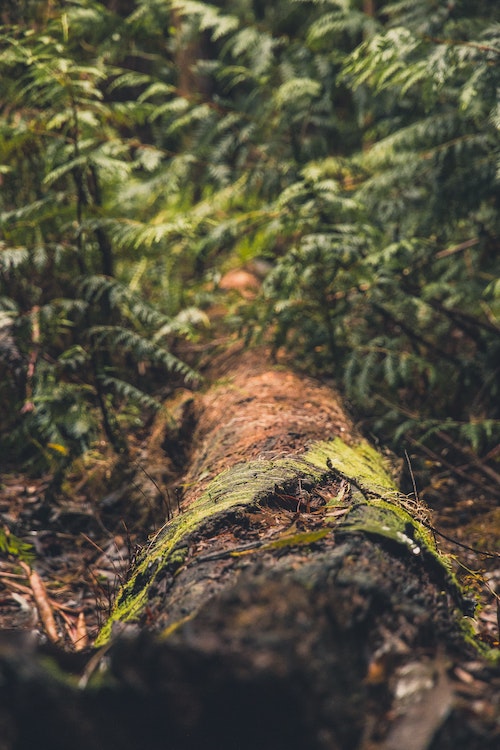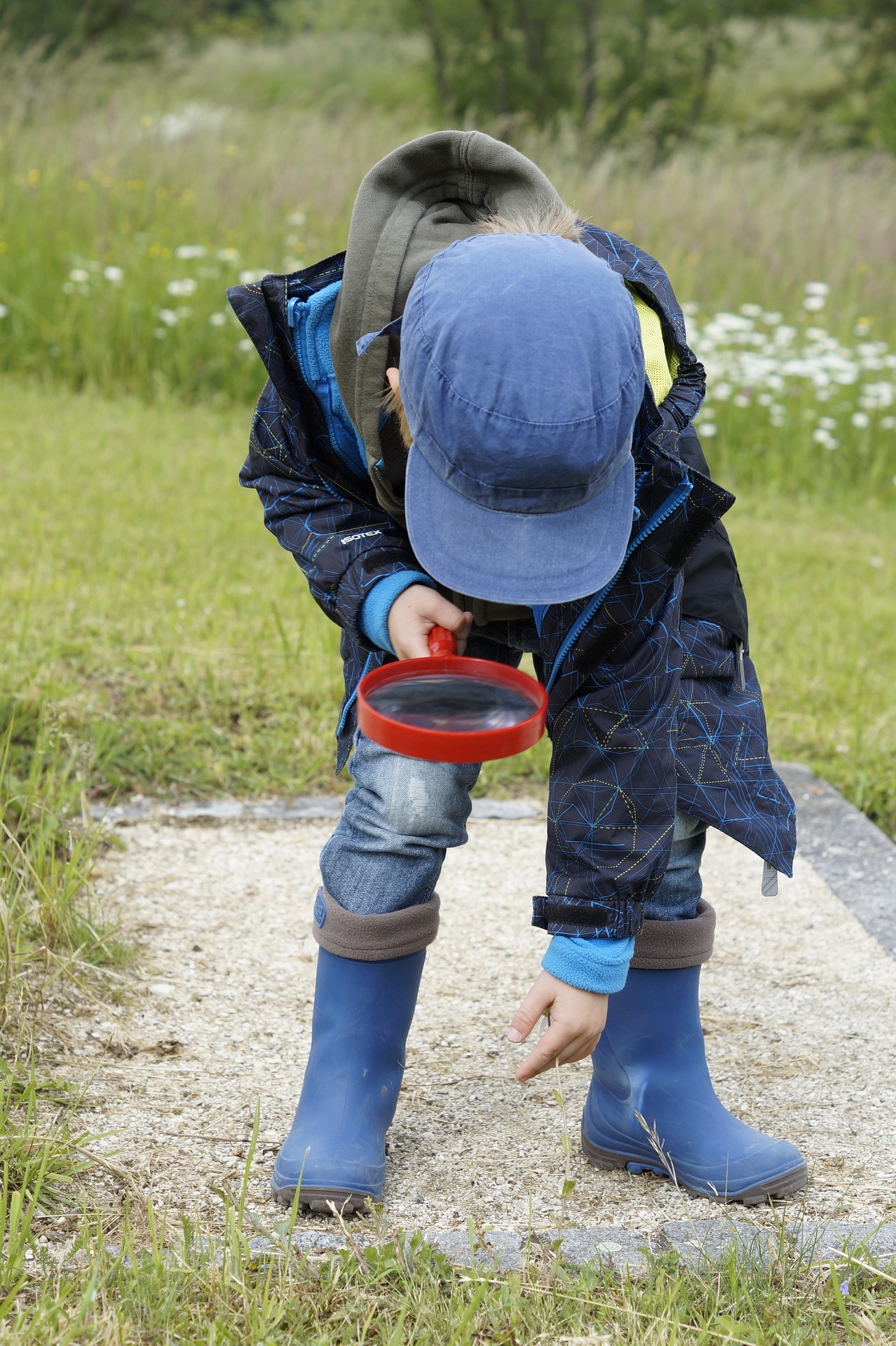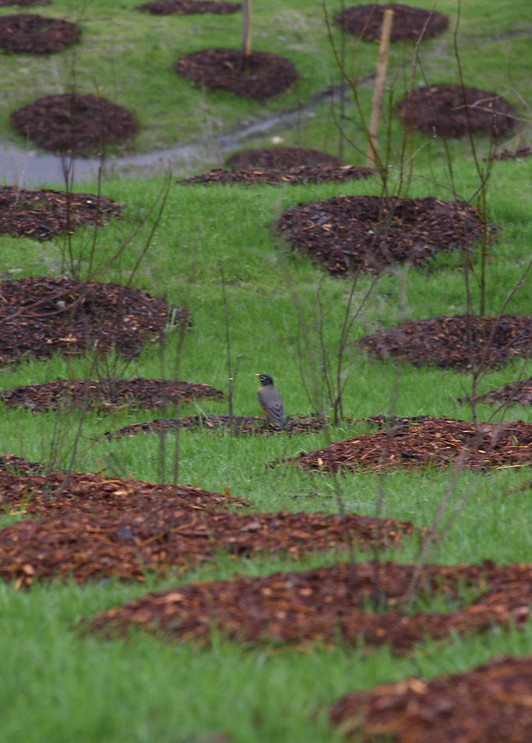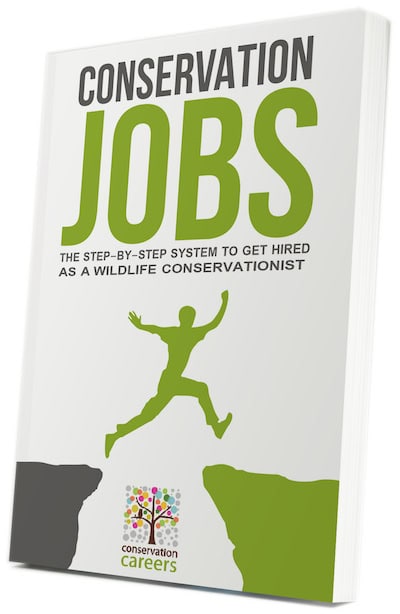How to become an ecologist
Are you intrigued by how living things interact with each other and their environment? Would you like to study these interactions at the level of individual beings, groups or ecosystems? Find out how to become an ecologist and start your wild career!
As an ecologist, you could help advance conservation biology; manage natural resources through sustainable agriculture, forestry or fisheries; plan sustainable, healthy cities; help others appreciate nature; and much more.
Whether you’re an emerging ecologist, career switcher or simply exploring potential career paths, this guide will help you understand what ecologists do, and how you could become one.
Table of Contents
What does an ecologist do?

Ecologists study the relationships between living things (including humans!) and the environment around them.
Ecologists can study these relationships anywhere from the level of an individual organism, to a population, community, ecosystem or biosphere – i.e. from a single mushroom, up to the Great Bear Rainforest and beyond.
Here are few quick definitions before we go further…
 Population: A group of individuals of the same species that live and interbreed within the same geographical area. For example, a group of a particular species of fungi occupying the same area of forest, and reproducing sexually or asexually.
Population: A group of individuals of the same species that live and interbreed within the same geographical area. For example, a group of a particular species of fungi occupying the same area of forest, and reproducing sexually or asexually.
Community: A group of interacting populations of two or more different species living in the same geographical area at the same time. For example a group of fungi and other plant species occupying a fallen nurse log at the same time.
Ecosystem: All the organisms and the physical environment with which they interact. For example, a coastal temperate rainforest ecosystem in the Pacific Northwest.
Biosphere: All the parts of Earth where life exists.
- Interactions and adaptations of organisms.
- How energy and materials move through living systems (e.g. primary productivity, nutrient cycling, etc.).
- Patterns in plant and animal behaviour, life history, population size, habitat use, etc. over time.
- Changes in habitat connectivity, patterns of natural and human disturbance and species composition over time.
- Processes such as succession (how the structure of a biological community changes over time).
- Interactions within and between species, such as predation, competition and cooperation.
- The abundance and distribution of species.
- Patterns of biodiversity.
- How ecosystems function (and what happens when ecosystem health and function is affected by human activities such as pollution, invasive species, climate change, diseases, etc.).
Ecologists can apply science to areas such as:
 Informing environmentally sustainable development (ecological consultancy).
Informing environmentally sustainable development (ecological consultancy).- Controlling non-native and invasive species.
- Cleaning up contaminated sites (remediation).
- Using science to inform sustainable forestry practices.
- Feeding human populations in an ecologically-sustainable way – such as nature-friendly farming (agriculture and agro-ecology) and sustainable fisheries.
- Predicting future ecological changes due to future climate scenarios, invasive species, etc. (e.g. using modelling techniques).
- Informing policymakers and other groups about threats to ecosystems and how to mitigate them.
- Applying environmental laws and regulations.
- Managing the use and development of land resources for diverse purposes – from agriculture and water to nature and tourism (land management).
- Putting a value on the benefits that nature provides us (Environmental economics).
- Understanding past environments and climates.
- Carrying out ex-situ (off-site) conservation in botanical gardens, aquariums, etc.
- Educating individuals, schools and other groups about interactions in nature, and how these relate to humans.
- Informing conservation biology.
- Planning healthy, sustainable cities.
- Ensuring that ecosystems can continue to sustain human life through ‘ecosystem services‘ such as providing food, fuel, fibre and medicines; regulating climate; controlling erosion; protecting from storms; cultural values, and more.
Ecologists might also choose to specialise on specific areas, such as:
 Community ecology: Studying how communities (groups of interacting populations sharing the same area) are organised and function.
Community ecology: Studying how communities (groups of interacting populations sharing the same area) are organised and function.- Population ecology: Studying the processes that affect the dynamics of populations, like distribution and abundance.
- Microbial ecology: Studying how microorganisms interact with each other, their environment and other species.
- Molecular ecology: Using molecular genetic tools, such as DNA markers, to answer ecological questions related to biogeography, conservation genetics, behavioural ecology and more.
- Behavioural ecology: Studying how an animal’s behaviour relates to its ecological environment, from an evolutionary perspective.
- Ecosystem ecology: Studying how living and non-living components of ecosystems interact, within an ecosystem.
- Landscape ecology: Studying the pattern and interaction between ecosystems within a relatively large region, and how they affect ecological processes (e.g. how spatial variation in the landscape affects interactions and processes).
- Agroecology: Applying ecological principles to agricultural systems, e.g. to inform new management approaches.
- Global ecology: Studying how the Earth’s ecosystems, land, atmosphere and oceans interact.
- Deep ecology: An environmental philosophy that promotes all living beings as having equal value, and advocating for new relationships between humans and nature.
- Tropical ecology: Studying how living things interact with their environment in the tropics.
If you’re considering a career as an ecologist, don’t limit yourself!
Once trained, you might choose to focus on creating new habitats for biodiversity to thrive, compensating for biodiversity loss within the planning and development sector, helping train future ecologists, or even use environmental education to challenge and change our societal norms of acceptance.
Ultimately, ecologists have a huge role to play in understanding the world around us, and shaping the future of our living planet.
Where do ecologists work?
- Academia – Help create the research base that practitioners need to effectively conserve nature. Employers are typically universities and colleges, such as Oxford University, Miami University, Oxford Brookes University, Cardiff University and Stockholm University.
- Charity – Contribute to not-for-profit and non-governmental conservation activities with the Charity, NGO or ‘Third Sector.’ Examples include WWF, Ducks Unlimited, Freshwater Habitats Trust, Ecology Project International, South African National Biodiversity Institute and American Conservation Experience.
- Business – Work with for-profit private companies, ecological consulting firms, or other businesses that need ecologists, such as Thomson Environmental Consultants, AGB Environmental, Network Rail, Ramboll, The Ecology Practice and Ocean Ecology. Other businesses also offer jobs related to ecology, such as NHBS (a provider of ecology books and more).
- Government – Help set regional, national or international policies, and enforce best practice with the public sector or civil service. Examples of government institutions and agencies include the Center for Environmental Management of Military Lands, the U.S. Forest Service, North Somerset Council (UK), Falkland Islands Government and Fisheries and Oceans Canada.
- Enterprise – Join the start-up, social enterprise or innovation movement, applying commercial strategies to maximise improvements in environmental and human well-being. An example is Ecology Training UK.
What is a typical ecologist job description?
- Conducting fieldwork (see below!)
- Preparing reports such as botanical/ecological assessments, monitoring and management reports, restoration plans, habitat assessments, as well as bids and tenders.
- Managing ecological survey work, projects, teams and/or budgets.
- Undertaking surveys for protracted species of plants and habitats.
- Liaising with clients.
Field research and monitoring
As an ecologist conducting field research you’ll focus on collecting data on living and nonliving aspects of the environment. Some typical field ecologist job duties include:
- Identifying species in the field or collected from the field.
- Conducting species or vegetation surveys, habitat assessments and/or monitoring.
- Carrying out inventories for threatened, rare and special-status species.
- Mapping in the field (e.g. wetland delineations).
- Recording, inputting, analysing and/or summarising field data.
- Coordinating with landowners.
Job duties for more experienced ecologists might also include:
- Planning field research and logistics.
- Leading field teams.
As an ecologist working in practical land management, you could find yourself:
- Removing or controlling non-native and invasive species.
- Reintroducing threatened species in their natural habitat.
- Managing teams of interns, volunteers and/or students.
- Working on rewilding or habitat creation projects.
- Managing properties, carrying out stewardship of lands.
Planning & Policy
As a planning ecologist, you could use your expertise to:
- Provide professional, technical advice to ensure that ecological matters are given due weight in the planning process.
- Review planning, permit and environmental assessment applications and proposals to ensure they meet policies, regulations and best practice ecological management.
- Review reports such as Environmental Impact Assessments.
- Collect, analyse, and interpret data/information and prepare monitoring reports.
- Conduct site/habitat evaluations, delineations of natural features (e.g. watercourses, wetlands) and monitoring.
- Coordinate management of habitats and threatened/endangered species.
- Prepare plans for restoration and mitigation projects; apply for grants and secure permits; and plan, develop, implement monitoring of mitigation and/or habitat enhancements projects; and write monitoring, progress and other reports.
- Conduct site inspections to ensure compliance.
- Investigate reports of unpermited or illicit activities.
- Work with internal and external clients to maintain, enhance, protect and conserve natural resources.
- Work collaboratively with other experts (e.g. planners, hydrogeologists, engineers, etc.) to ensure coordination of technical comments.
- Lead on, or contribute to, developing guidelines, policy and tools related to regulations.
- Develop educational materials associated with protecting natural resources.
- Train junior staff.
Image: Senior ecological consultant Robbie Hawkins with a Horseshoe Crab in a wetland area in New York.
 Research
Research- Undertaking research focused on developing ecologically-based approaches to wildlife management issues. This could include field research, remote sensing, modelling and more.
- Applying ecological and statistical skills to support projects such as threatened species monitoring, managing vertebrates, developing land management tools for invasive species, decision science, etc.
- Working with stakeholders to co-develop research products that support ecologically-based wildlife management strategies.
- Providing original quantitative analyses to understand ecological dynamics, the effectiveness of management actions and to help guide interactions among species and humans.
- Leading or contributing to scientific research to enhance environmental management outcomes.
- Translating complex data into resources for non-scientific stakeholders.
 Projects & Programmes
Projects & Programmes
As an ecologist focused on ecological projects or programmes, you could find yourself:
- Identifying, planning and managing projects such as habitat restoration, wildlife management or species reintroductions.
- Applying for funding.
- Planning and implementing field surveys, such as ecological assessments and monitoring.
- Data management, analysis and reporting.
- Coordinating community support (public and/or private), such as citizen science.
- Building relationships with and capacity of partners (e.g. academic, government and non-governmental organisations, landholders, etc.).
- Communicating science and other information to diverse groups.
- Marketing and communications.
- Supervising staff/volunteers.
Common early to mid-career ecologist job titles include: Assistant Ecologist, Graduate Ecologist, Ecologist, Consultant Ecologist, Environmental Consultant, Research Assistant, Research Technician, Field Technician, Restoration Technician, Restoration Specialist, Invasive Plant Technician, Project Officer.
Mid to senior level and specialised ecologist job titles include: Riparian Ecologist, Wetland Ecologist, Range Ecologist, Principal Ecologist, Vegetation Ecologist, Senior Ecologist, Research Leader, Monitoring Crew Leader, Planning Ecologist, Research Ecologist, Natural Resource Manager, Environmental Planner, Programme Manager.
Want to understand what a day in the life of a botanist is really like? Read the latest Ecologist Career Stories & Advice, or check out these interviews and podcast episodes:
- Podcast: Sue Searle | Ecology Training UK
- Podcast: Nancy Thomson | Thomson Environmental Consultants
- Working in Ecological Consultancy – Claire Wansbury – Atkins
- BSG Ecology | What Are We Looking For In A Graduate Ecologist?
- Podcast | Dr Hugh Safford | Forest Fires & Conservation
- Professor David Hill CBE | Growing The Environment Bank
- What does an ecologist actually do? An interview with ecologist and nature author, Andrew Painting
- What’s it like to work as a environmental consultant?
- What jobs can ecology graduates do?
- How to Become a Research Ecologist?
- Habitat Creation with Robbie Hawkins
- Professor Steve Ormerod – An Ecologist’s Career
- Conservation is about Storytelling: An Interview with Anna Wearn
- Connel Bradwell – A Queer eye for Queer Ecology
- The Journey of a Behavioural Ecologist Conservation Biologist
How much money does an ecologist make?

Within the context of conservation, ecologists – particularly ecological consultants – are relatively well paid.
Salaries can vary depending on the employer type, with business and government usually offering the highest salaries, followed by the academic and charity sectors.
According to the National Careers Service, the average salary for an ecologist in the UK ranges from £22,000 for someone just starting out, to £45,000+ for an experienced ecologist. A Director of Ecology can make much more.
According to Glassdoor, the average salary for ecologist in the United States is USD $60,855 per year, based on 130 salaries submitted anonymously to Glassdoor.
According to the Government of Canada, ecologists in Canada make between CAD $23 and $56.41 per hour, and the median wage for an ecologist in Canada is CAD $38.04 per hour.
Here are some examples of ecologist salaries, from jobs posted on Conservation Careers:
 United Kingdom
United Kingdom
- Ecology Officer | North Somerset Council | £28,672 to £35,745.
- Principal Ecologist | agb Environmental | £40,000.
- Research Ecologist | Game & Wildlife Conservation Trust | £25,000 – 31,000.
- District Ecologist | East Devon District Council | £37,890 – £41,881.
- Ecologist | Western Ecology | £21,000 – £25,000.
- Assistant Ecologist | Merseyside Environmental Advisory Service | £25,991 – £29,577.
- Ecologist | Network Rail | £32,740.
- Ecologist | Cherryfield Ecology Ltd | £20,000 to £24,000 (or £18,000 to £20,000 for a Graduate Ecologist).
- Consultant Ecologist | Quantock Ecology | £22 ,000 – £27,000.
- Project Officer | River Thame Conservation Trust | £24,000 – 28,800+.
- Ecological Field Manager | Middlemarch Environmental Ltd | £26,000 – £36,000.
- Ecologist | Greenwillows Associates | £23,000 – £27,500.
- Ecologist | CORMAC Consultancy | £27,422 – £36,312.
- Restoration Ecologist | The Nature Conservancy | $56,500.
- Senior Ecological Consultant | Davey Resource Group | $60,000 – $78,000.
- Senior Ecologist | City of Kent | $90,336.00- $109,932.00.
 Conservation Ecologist (WildTracker) | Tasmanian Land Conservancy (Australia) | AUD $70,000- $79,000.
Conservation Ecologist (WildTracker) | Tasmanian Land Conservancy (Australia) | AUD $70,000- $79,000.- Project Officer (Ecologist) | National Parks & Wildlife Service (Australia) | AUD $ 97,433 – $107,864.
- Wildlife Ecologist | Government of South Australia | AUD $83,152 – $92,020.
- Senior Ecologist | Victoria State Government | AUD $124,033 – $165,983.
- Quantitative Ecologist | CSIRO (Australia) | AUD $113,000 – $132,000.
- Research Fellow, Ecological Modelling | Griffith University (Australia) | AUD $76,899 – $90,077 to $98,174 – $116,584.
- Ecologist | Biodiversity Conservation Trust (Australia) | AUD $93,326 – $103,113.
Canada
- Senior Terrestrial Biologist/Ecologist | Cambium (Canada) | $60,000 – $110,000.
- Planning Ecologist | Niagara Peninsula Conservation Authority (Canada) | CAD $34.79 – $40.93 per hour.
- Planning Ecologist | Toronto and Region Conservation Authority (Canada) | CAD $70,991 – $76,966.
- Riparian Resource Technician | Alberta Riparian Habitat Management Society (Canada) | CAD $3,218 per month.
For more examples of ecologist salaries worldwide, why not search our Career Explorer database by country, region or level.
- USD $15-20/hour for an Ecological Internship with The Environmental Surveillance, Education, and Research (ESER) Program in Idaho, USA.
- Housing provided for a Habitat Restoration Intern with Turtle Island Restoration Network, California, USA.
- USD $925 or $875 per month for full room and board for a Tropical ecology independent research placement with Para La Tierra, Paraguay.
What is the job demand for ecologists?

An increasing focus on environmental sustainability is likely to drive job growth and create more opportunities for ecologists.
When searching for jobs, remember that these jobs my have many different titles – such as Natural Resource Manager, Environmental Consultant, Environmental Planner, Programme Manager, and many more.
To get an idea of the abundance and frequency of ecologist jobs available, check out our Job Board and Career Explorer database (members only).
What are ecologist education requirements?

How do I get an ecology degree?

Search our Conservation Training board for degrees and courses related to ecology, such as:
Short courses
 Introduction to Ecology | Ecology Training UK | Online.
Introduction to Ecology | Ecology Training UK | Online.- Bat online courses for ecologists | Ecology Training UK | Online.
- Invasive Species | Ecology Training UK | Online.
- Beginners Botany | Ecology Training UK | Online.
- Habitat online courses for ecologists | Ecology Training UK | Online.
- Grass Identification Self Study | Ecology Training UK | Online.
- Surveying for Protected Species | Ecology Training UK | Online.
- Mammal (Badger, Beaver, Dormouse & Otter) online courses for ecologists | Ecology Training UK | Online.
- Reptile and amphibian online courses for ecologists | Ecology Training UK | Online.
- Ecological Monitoring | IUCN-PAPACO | Online.
- Ecology and Wildlife Conservation | Future Learn | Online.
- Interactive internship on the Smooth-coated otter behaviour in India | Wild Otters Research | Online.
- Frogs, Newts and Toads: British Amphibians | Field Studies Council (FSC) | High Beach, UK.
- Ecological Appraisal Fundamentals | Wildwood Ecology | Online.
- Bat Roost Survey Fundamentals | Wildwood Ecology | Online.
- Amazonian ABCs: Fundamentals of rainforest ecology in the Peruvian Amazon | Alliance for a Sustainable Amazon | Madre de Dios, Peru (Field course).
Postgraduate Certificates
- Ecological Survey Techniques | University of Oxford | Online & Oxford, UK.
- Tropical Forest Landscapes: Conservation, Restoration & Sustainable Use | Yale School of the Environment | Online.
Master’s – UK
 Conservation Ecology | Oxford Brookes University | Oxford, UK.
Conservation Ecology | Oxford Brookes University | Oxford, UK.- Biological Recording and Ecological Monitoring | Manchester Metropolitan University | Shrewsbury, England.
- MSc Global Ecology and Conservation | Cardiff University | Cardiff, Wales.
- MSc Evolutionary and Behavioural Ecology | University of Exeter | Cornwall, UK.
- MSc Marine Vertebrate Ecology and Conservation | University of Exeter | Cornwall, UK
- Marine Ecosystem Management (MSc) | University of St Andrews | St Andrews, Scotland (Master’s).
- MSc Marine Environmental Management | University of York | York, England.
- MSc in Marine Environmental Management | University of Hull | Kingston upon Hull, England.
- Biological Recording and Ecological Monitoring | Manchester Metropolitan University | Shrewsbury, England.
- Ecological Design Thinking | Schumacher College | Dartington, UK.
Master’s – USA
- Applied Ecology | SUNY – College of Environmental Science and Forestry | New York City, USA.
- Ecology and Evolution | University of Pittsburgh | Pittsburgh, USA.
- Ecology, Evolution, Behavior | University of Illinois | IL, USA.
- Ecology and Environmental Sciences | University of Maine | Orono, ME, USA.
- Ecology and Conservation | Idiana University | IN, USA.
- Ecology, Evolution, and Conservation Biology | Colombia University | Manhattan, NY, USA.
- Ecology and Evolutionary Biology | University of Arizona | AZ, USA.
- Wildlife Ecology and Conservation | University of Florida | FL, USA.
- Tropical Forest Landscapes: Conservation, Restoration & Sustainable Use | Yale School of the Environment | Online.
- Ecology and Evolutionary Biology – Traditional | University of Michigan | MI, USA.
- Evolution, Ecology and Organismal Biology | Ohio State University | Columbus, OH, USA.
- Ecology, Evolution & Marine Biology | University of California | Santa Barbara, CA, USA.
- Ecological systems | University of Maryland | Cambridge, MA, USA.
- Ecological Engineering | SUNY – College of Environmental Science and Forestry | New York City, NY, USA.
- Ecology | Cornell University | Ithaca, NY, USA.
- Ecology and Evolution | Rutger’s University | New Brunswick, NJ, USA.
- Applied Ecology | Michigan Technological University | Houghton, MI, USA.
- Fish, Wildlife and Conservation Ecology | New Mexico State University | Las Cruces, NM, USA.
- Ecology and Biodiversity | Stockholm University | Stockholm, Sweden.
- Biological Sciences – Ecology and Evolution | University of Amsterdam | Amsterdam, Netherlands.
- Ecology | Vrije Universiteit | Amsterdam, Netherlands
- International Studies in Aquatic Tropical Ecology | University of Bremen | Bremen, Germany.
- M.Sc. Environmental Sciences | University of Freiburg | Freiburg, Germany.
- Landscape Ecology | University of Hohenheim | Stuttgart, Germany.
- International Master in Applied Ecology (IMAE) | Université de Poitiers | Poitiers, France.
- Biology and Ecology with Nature Conservation | University of Maribor | Maribor, Slovenia.
Master’s – Other regions
- Environmental Management | University of Queensland | Brisbane, Australia.
- Ecology and Evolutionary Biology | University of Toronto | Toronto, Canada.
- Environmental Science | Qatar University | Doha, Qatar.
Explore our Conservation Training board for more courses, postgraduate certificates, master’s and more training opportunities related to ecology.
What are the top ecologist skills?

Pick a typical ecologist career from the examples below to explore skills and experience employers are looking for.
Field research and monitoring
 Specialist Skills, Knowledge & Certifications
Specialist Skills, Knowledge & Certifications
- Survey skills (e.g. habitat surveys, protected species surveys, vegetation surveys; or other terrestrial and/or aquatic surveys).
- Species (flora and/or fauna) ID.
- Mapping (e.g. wetland delineations).
- Licences (e.g. for protected species, bats, reptiles, etc.).
- Regional and/or national certifications (e.g. land classification, wetland evaluation, etc.).
- Planning, coordinating and undertaking ecological fieldwork.
- Organisational skills.
- Verbal and written communication skills.
- Interpersonal skills (e.g. with colleagues, landowners).
- Driver’s licence and access to vehicle.
- Data management, including data recording, entry and analysis.
- IT literate.
- MS Office (e.g. Word, Excel).
- Ability to work independently and in a team.
- Flexibility to travel for work and work unsociable hours.
- Navigation in remote areas using maps and GPS.
- Attention to detail.
- Adaptability to changing work requirements.
- Working under pressure.
Experience
- Field experience.
- Knowledge of native and non-native species.
- Local experience.
- Supervising and/or training other field staff.
Ecological consultancy
- Knowledge of relevant policy, legislation and regulations, and their application (e.g. wildlife legislation, Endangered Species Acts, etc.).
- Professional membership (e.g. CIEEM in the UK).
Transferrable Skills
- Technical and/or report writing.
- Ability to explain scientific and technical concepts to non-technical audiences.
- GIS (e.g. QGIS).
- Project management, including developing and implementing monitoring protocols to evaluate project performance; budget management.
- Client and relationship management.
- Ability to set and meet timelines.
- Able to communicate clearly with colleagues, clients and contractors.
- Supervising and/or training other ecologists (for more senior roles).
- Commercial awareness.
Experience
- Ecological consultancy experience.
- Experience with Ecological Impact Assessments.
- Experience preparing species at risk assessments.
- Experience managing contractors.
- Experience with health and safety.
- Experience with contract preparation and management, contractor oversight, budget management, and permitting processes.
Above image: The UKHab App, a guide to the UK Habitat Classification.
Restoration & Remediation
 In addition to some of the skills and experience listed above, restoration and remediation jobs may need…
In addition to some of the skills and experience listed above, restoration and remediation jobs may need…
Specialist Skills & Knowledge
- Knowledge of current trends and practices in restoration and/or environmental management.
- Knowledge of restoration design.
Experience
- Experience in ecological restoration
- Experience with grant writing and preparing scopes of work
Above image: Washington State Department of Ecology on Flickr.
 Planning & Policy
Planning & Policy
Specialist Skills, Knowledge & Certifications
- Knowledge of ecosystem sciences, terrestrial and aquatic ecology, landscape ecology, environmental planning, and/or impact assessment.
- Knowledge of relevant legislation.
- Relevant certifications (e.g. wetland evaluation, ecological land classification).
- Ability to read and interpret construction drawings and reports.
- Understanding of construction techniques and mitigation measures to prevent environmental damage.
Transferrable Skills
 Critical thinking and analytical skills.
Critical thinking and analytical skills.- Customer service, conflict resolution and negotiation skills.
- Strong oral and written communication skills.
- Ability to articulate complex ecological concepts to non-ecologists.
- Strong oral and written communication skills.
- Ability to review, interpret and implement policies.
- Project management.
- Ability to collaborate with other technical staff and disciplines.
- Time management skills to ensure deadlines are met.
- Meeting facilitation skills.
- Valid driver’s licence.
Experience
- Relevant experience (e.g. policy interpretation and implementation within ecological impact assessment and management).
Image: Salmon restoration by Bureau of Reclamation on Flickr.
Research
 Specialist Skills
Specialist Skills
- Ecological field and experimental design skills.
- The ability to use ecological concepts to address environmental issues.
- Data-driven modelling and programming (e.g. spatial statistics, developing mathematical models of ecological processes).
- Publishing reports and papers.
- Transforming complex data and concepts into easily interpreted end products for policy makers and non-scientific stakeholders.
Transferrable Skills
- Ability to work independently.
- Ability to conduct collaborative research in a multidisciplinary team.
 Strong written and verbal communication skills.
Strong written and verbal communication skills.- Interpersonal skills.
- A driver’s licence.
Experience
- Research experience (e.g. ecological modelling and/or ecological prioritisation).
- Strong publication record.
Images: Freshwater conservation prioritisation in the Congaree Biosphere Region, USA, and conservation areas for top predators, Iberian Peninsula. Credit: Marxan Conservation Solutions.
Projects & Programmes
 Specialist Skills
Specialist Skills
- Planning and implementing field surveys (e.g. ecological assessments and monitoring).
Transferrable Skills
- Project planning and management.
- Grant writing.
- Data management, analysis and reporting.
- Strong verbal and written communication.
- Relationship building.
- Capacity building.
- Communicating science and other information to diverse groups.
- Marketing skills.
- Communications skills (e.g. Communications for Conservation Projects).
Experience
- Experience coordinating community support (public and/or private), such as citizen science.
- Experience supervising staff and/or volunteers.
Image: A Citizen Science Coordinator and volunteers prepare for a survey. NPS Photo by Ivie Metzen on Flickr.
What societies and professional organisations of ecologists exist?

-
 Ecological Society of America (ESA). Founded in 1915, ESA is a nonpartisan, nonprofit organization of scientists, whose mission is to advance the science and practice of ecology and support ecologists throughout their careers. They have over 9,000 members and publish a suite of publications, from peer-reviewed journals to newsletters, fact sheets and teaching resources.
Ecological Society of America (ESA). Founded in 1915, ESA is a nonpartisan, nonprofit organization of scientists, whose mission is to advance the science and practice of ecology and support ecologists throughout their careers. They have over 9,000 members and publish a suite of publications, from peer-reviewed journals to newsletters, fact sheets and teaching resources. British Ecological Society (BES). Established in 1913, BES is the oldest ecological society in the world. Dedicated to advancing ecological science, they have 6,000 members around the world and membership is open to anyone, anywhere. They produce eight world-renowned journals, provide grants, organise events, provide careers support and more.
British Ecological Society (BES). Established in 1913, BES is the oldest ecological society in the world. Dedicated to advancing ecological science, they have 6,000 members around the world and membership is open to anyone, anywhere. They produce eight world-renowned journals, provide grants, organise events, provide careers support and more. Chartered Institute of Ecology and Environmental Management (CIEEM). Formed in 1991, CIEEM is the leading professional membership body representing and supporting ecologists and environmental managers in the UK, Ireland and abroad. They establish and uphold standards of professional competence; promote the sharing of best practice through publications, networking and awards; provide training and conferences; and much more.
Chartered Institute of Ecology and Environmental Management (CIEEM). Formed in 1991, CIEEM is the leading professional membership body representing and supporting ecologists and environmental managers in the UK, Ireland and abroad. They establish and uphold standards of professional competence; promote the sharing of best practice through publications, networking and awards; provide training and conferences; and much more.- International Association for Impact Assessment (IAIA)
 . IAIA provides the international forum to advance best practice and innovation in impact assessment and advocates for its expanded use for the betterment of society and the environment. IAIA’s members are professionals from a diverse array of interests and organizations.
. IAIA provides the international forum to advance best practice and innovation in impact assessment and advocates for its expanded use for the betterment of society and the environment. IAIA’s members are professionals from a diverse array of interests and organizations.  Society for Ecological Restoration (SER). SER is a dynamic global network of nearly 4,000 members who foster the exchange of knowledge and expertise among ecological restoration practitioners and scientists from diverse disciplines and backgrounds. SER communicates leading-edge tools, technologies and scientific findings, and actively promotes best practices and effective restoration policy around the world.
Society for Ecological Restoration (SER). SER is a dynamic global network of nearly 4,000 members who foster the exchange of knowledge and expertise among ecological restoration practitioners and scientists from diverse disciplines and backgrounds. SER communicates leading-edge tools, technologies and scientific findings, and actively promotes best practices and effective restoration policy around the world. European Ecological Federation (EEF). EEF promotes the science of ecology in Europe and worldwide by enabling cooperation between 18 ecological societies in 20 countries. It grants membership to members of a national society already represented in the EEF.
European Ecological Federation (EEF). EEF promotes the science of ecology in Europe and worldwide by enabling cooperation between 18 ecological societies in 20 countries. It grants membership to members of a national society already represented in the EEF. Canadian Society for Ecology and Evolution (CSEE). CSEE is a group of practicing ecologists and evolutionary biologists throughout Canada with a broad membership and a range of resources, including an annual conference, meetings, grants and awards, support for outreach projects and more.
Canadian Society for Ecology and Evolution (CSEE). CSEE is a group of practicing ecologists and evolutionary biologists throughout Canada with a broad membership and a range of resources, including an annual conference, meetings, grants and awards, support for outreach projects and more. The Ecological Society of Australia (ESA). ESA is a group of over 1,000 ecologists across Australia, which has supported ecologists and promoted ecology and ecological research for over 60 years. Membership benefits include conferences, publications, prizes and grants, a member directory, ‘hot topics’ and more.
The Ecological Society of Australia (ESA). ESA is a group of over 1,000 ecologists across Australia, which has supported ecologists and promoted ecology and ecological research for over 60 years. Membership benefits include conferences, publications, prizes and grants, a member directory, ‘hot topics’ and more. The New Zealand Ecological Society. Formed in 1951, this not-for-profit society publishes ecological research, promotes sound ecological planning and management and fosters collaboration and communication among ecologists. It is open to anyone with an interest in ecology, and its 550+ members benefit from an annual conference, scientific journal; awards, grants and prizes; publications and more.
The New Zealand Ecological Society. Formed in 1951, this not-for-profit society publishes ecological research, promotes sound ecological planning and management and fosters collaboration and communication among ecologists. It is open to anyone with an interest in ecology, and its 550+ members benefit from an annual conference, scientific journal; awards, grants and prizes; publications and more.
Meet ecologist role models
Just a few famous ecologists include:
 Antonie van Leeuwenhoek, a Dutch self-taught scientist scientist and “father of microbiology” who developed the concept of food chains.
Antonie van Leeuwenhoek, a Dutch self-taught scientist scientist and “father of microbiology” who developed the concept of food chains.- Alexander von Humboldt, a German geographer, naturalist and explorer who helped inform natural history and biogeography, and was the first to describe the ecological gradient in which biodiversity increases towards the tropics.
- Sir Arthur George Tansley, an English botanist who introduced the concept of the ecosystem and was a founding member of the first professional society of ecologists, which later organised the British Ecological Society.
- Carl Linnaeus, the “father of taxonomy”.
- Eugene Odum, an American biologist recognised for his pioneering work on ecosystem ecology, who co-authored Fundamentals of Ecology (1953).
- Rachel Carson, an American marine biologist, conservationist and author, whose book Silent Spring (1962) convinced thousands of Americans to take action for the environment.
Read interviews with professional ecologists from around the world, such as:
from around the world, such as:
- BSG Ecology | What Are We Looking For In A Graduate Ecologist?
- Podcast | Dr Hugh Safford | Forest Fires & Conservation.
- Podcast: Nancy Thomson | Thomson Environmental Consultants.
- Professor David Hill CBE | Growing The Environment Bank.
- Podcast: Sue Searle | Ecology Training UK.
- Podcast: Ada Grabowska-Zhang | University of Oxford.
- Working in Ecological Consultancy – Claire Wansbury – Atkins.
- Habitat Creation with Robbie Hawkins.
- What does an ecologist actually do? An interview with ecologist and nature author, Andrew Painting.
- How to be an Effective Ecologist | Neil Middleton.
- A look into Ecology Careers | Neil Middleton.
- How to Become a Research Ecologist?
- Professor Steve Ormerod – An Ecologist’s Career.
- The Journey of a Behavioural Ecologist Conservation Biologist.
- Connel Bradwell – A Queer eye for Queer Ecology.
Image 1: Rachel Carson by Ron Mader on Flickr.
Image 2: A robin searches for worms on a habitat restoration project. Credit: Port of Tacoma on Flickr.
Search all the latest ecologist jobs
Search all the latest ecologist jobs on our Conservation Job Board.
Are you looking for ecologist jobs in the UK? You can search the latest ecologist jobs on Ecology Jobs.
FAQs
Ecologists are scientists who study the relationships between living things (including humans!) and the environment around them.
Ecologists can study these relationships anywhere from the level of an individual organism, to a population, community, ecosystem or biosphere – i.e. from a single mushroom, up to the Great Bear Rainforest and beyond.
Ecologists study the relationships between living things (including humans!) and the environment around them.
Ecologists can study these relationships anywhere from the level of an individual organism, to a population, community, ecosystem or biosphere – i.e. from a single mushroom, up to the Great Bear Rainforest and beyond.
- Interactions and adaptations of organisms.
- How energy and materials move through living systems (e.g. primary productivity, nutrient cycling, etc.).
- Patterns in plant and animal behaviour, life history, population size, habitat use, etc. over time.
- Changes in habitat connectivity, patterns of natural and human disturbance and species composition over time.
- Processes such as succession (how the structure of a biological community changes over time).
- Interactions within and between species, such as predation, competition and cooperation.
- The abundance and distribution of species.
- Patterns of biodiversity.
- How ecosystems function (and what happens when ecosystem health and function is affected by human activities such as pollution, invasive species, climate change, diseases, etc.).
See What does an ecologist do? for more examples of ecologist specialisations.
Within the context of conservation, ecologists – particularly ecological consultants – are relatively well paid.
Salaries can vary depending on the employer type, with business and government usually offering the highest salaries, followed by the academic and charity sectors.
According to the National Careers Service, the average salary for an ecologist in the UK ranges from £22,000 for someone just starting out, to £45,000+ for an experienced ecologist. A Director of Ecology can make much more.
According to Glassdoor, the average salary for ecologist in the United States is USD $60,855 per year, based on 130 salaries submitted anonymously to Glassdoor.
According to the Government of Canada, ecologists in Canada make between CAD $23 and $56.41 per hour, and the median wage for an ecologist in Canada is CAD $38.04 per hour.
See How much money does an ecologist make? for examples of ecologist salaries, from jobs posted on Conservation Careers.
The average salary for a botanist in the United States is $78,523 a year and $38 an hour, with an average salary range of $56,078 to $96,979. The average salary of soil and plant scientists in the US is $69,170.
Related Ecologist career profiles
Ornithologist | Studying birds
Ornithologists are scientists who specialise in the study of birds. Examples include: Seasonal Ornithologist, Consultant Ornithologist, Marine Ornithologist, etc. Explore.
Not sure yet which type of conservation role is right for you? Explore all 11 Key Conservation Roles.
Useful links & free stuff
 To help you navigate your options, please select which best describes you:
To help you navigate your options, please select which best describes you:- You want to work in conservation but you’re feeling lost, disillusioned or confused?!? Check out our Kick-Starter training designed to help you understand the job market, to navigate your career options, and to get hired more quickly. It’s designed for students, graduates, job-seekers and career-switchers. We’re proud to say it also has 100% satisfaction and recommendation ratings. We know you’ll love it. Find out more about our Kick-Starter – Online Course.
- You need answers to top questions about working in conservation? Check out our free Ultimate Guides covering topics like the 15 Key Conservation Job Types, Top Conservation Internships | Paid or Free and Marine Conservation Jobs, and answering questions like How to Switch Careers into Conservation, Do I need a Master’s Degree? and much more! Or download our free guides to keep and read later!
- You feel ready to be applying for jobs in conservation? Check out our membership packages for job seekers which provide access to the world’s biggest conservation job board – with over 10,000 conservation jobs shared each year – plus a range of other benefits. Check out our monthly memberships here.
- You’re submitting applications, but failing to get many interviews? Check out our FREE eBook Conservation Jobs: The Step-by-Step System to Get Hired as a Wildlife Conservationist – available on Kindle, EPUB and PDF. We can also review your applications, and provide 1:1 advice on how to improve them. Check out our application support here.
- You’ve got an interview (well done!) and would like our help to prepare for it? We know what employers want, and have helped many people prepare for and deliver successful interviews. Check out our interview preparation here.
- You’re feeling stuck, struggling with a career decision or something’s holding you back from pursuing the career of your dreams? Our 1:1 career coaching can help you gain clarity about your next steps and form a plan of action. Check out our career coaching here









